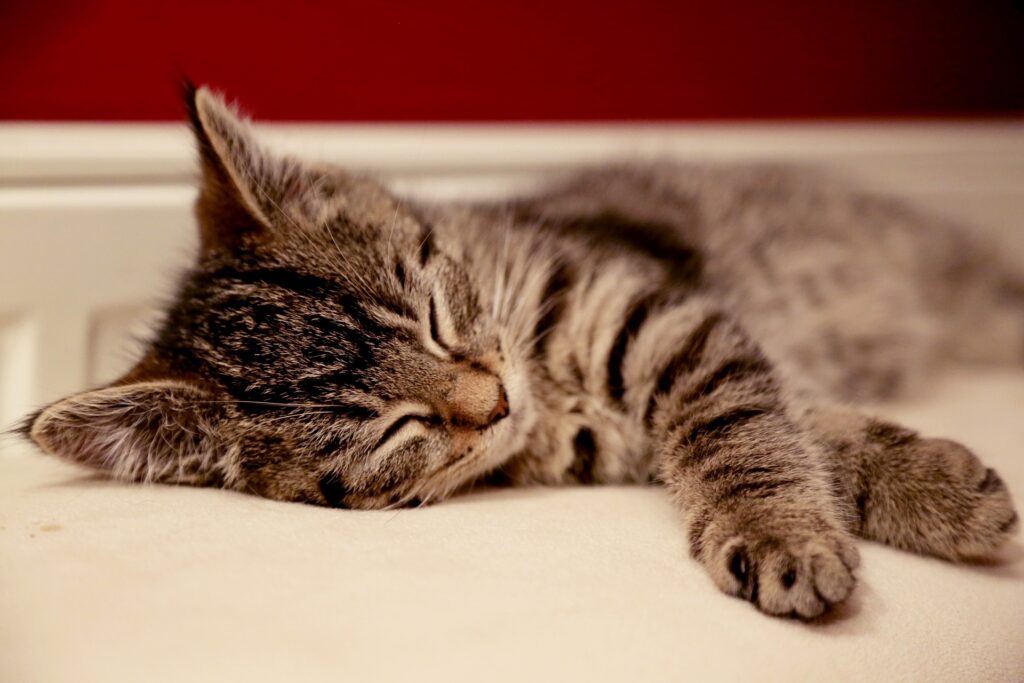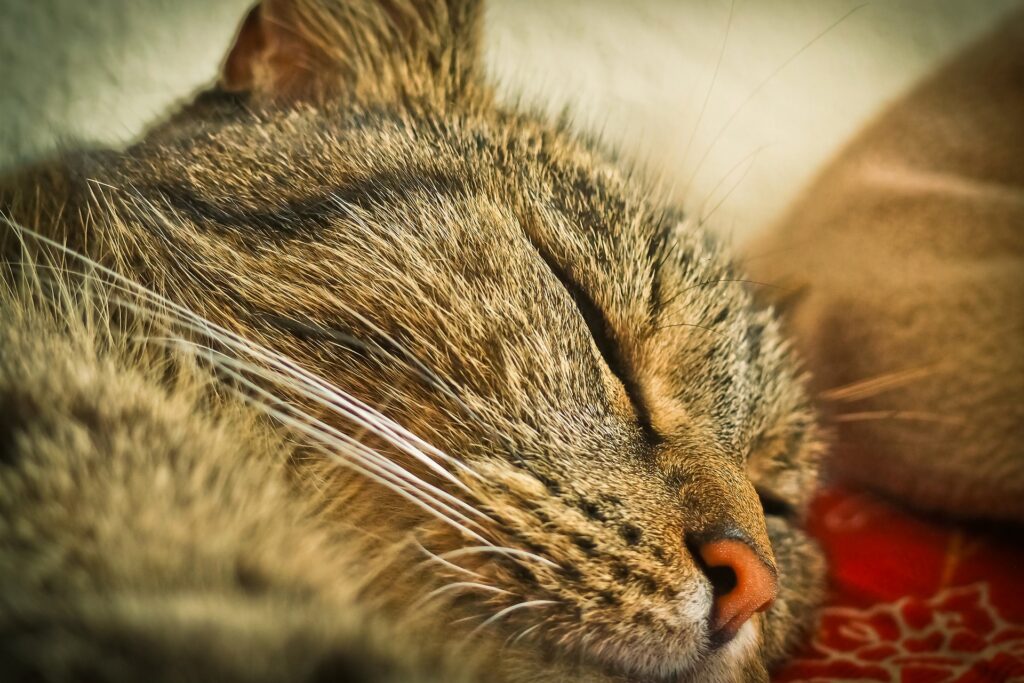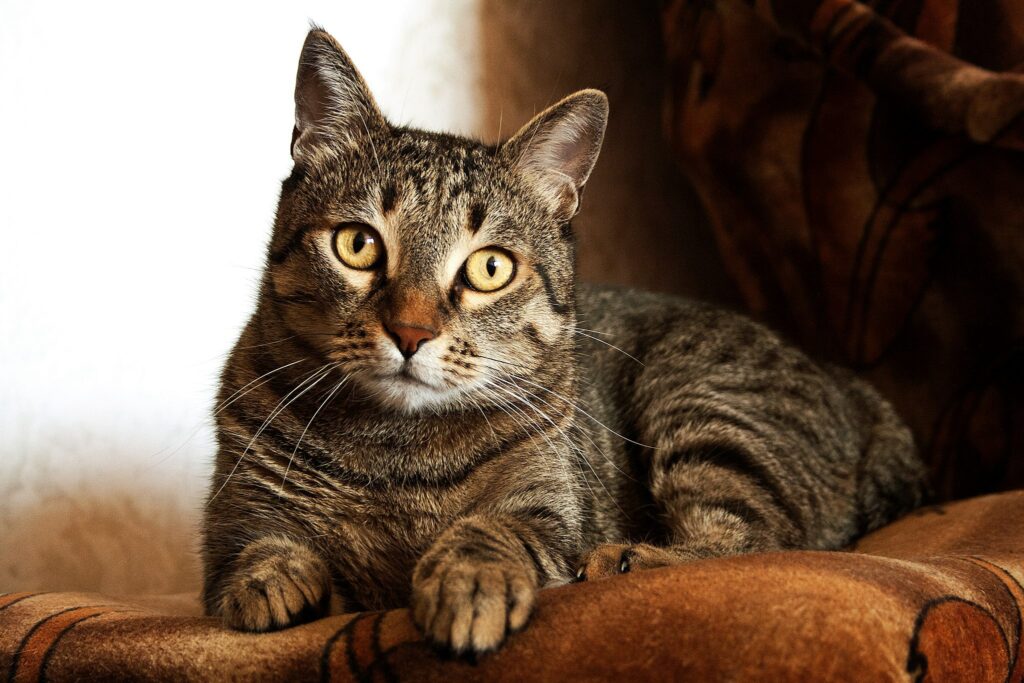As one of the UK’s most popular pets, the benefits of owning cats undoubtedly outweigh the negatives. They’re intriguing, take considerably less maintenance than dogs, and are hugely loyal. We love them just as much as we love dogs!
One worry for prospective cat owners is the danger of their homes being destroyed – and it is a genuine concern. Cats are incredibly agile and have a habit of tucking themselves in the smallest of spaces then jumping out when you least expect it…
… and they scratch!

Scratching has several functions for cats – most importantly, it keeps their claws sharp, which is essential for hunting. It also helps them to spread their scent, which is a way of communication between cats, as well as definite physical marks (a.k.a. the main problem).
Cats usually scratch outdoors, meaning that they often get it out of their system before entering the home. However, for owners considering keeping their pet cat indoors, it’s highly likely that they’ll practice scratching behaviours within the home itself.
Why Do Cats Scratch?
Aside from sharpening their claws and spreading their scent, the reasons that cats scratch vary dependent upon their situation. Identifying the reason for your cat’s scratching is vital in helping prevent the behaviour.
Some of the most common reasons for scratching include:
- Habit or Enjoyment: For some cats, scratching indoors is simply a matter of habit. In other instances, however, it comes as a result of the cat enjoying the texture of the material that they’re scratching, which ultimately encourages them to do it more. They also seem to do it as a precursor to more excited play.
- Boredom or Curiosity: Contrary to popular belief, cats become bored very easily, meaning that the smallest of distractions can become highly enticing. A loose piece of wallpaper, for example, can quite quickly lead to your room being stripped bare. If they are bored and make the connection between them scratching and you going crazy, they may repeat the behaviour to demand more attention.
- Increasing Feelings of Security: When cats feel vulnerable, they spread their scent to feel more secure – it’s comforting, and a warning to predators. Instead of spraying, some cats use scratching as a way of spreading their scent because it leaves a mark too. You may often notice your cat scratching in strategic places, such as the edges of chairs and objects close to doorways.

How To Stop Cats Scratching
As frustrating as it can be, it’s important that you try not to blame the cat. As we say, the behaviour is no way intended to wreak havoc and, if anything, shouting at them may only reinforce the behaviour or make their insecurities worse.
Here are some simple ways to help curb the scratching habit:
Provide A Scratching Post
Scratching comes natural for cats, so it’s important that they have a dedicated space to do it.
Scratching posts are great for cats that just love to scratch, and they’re portable, meaning you can place them in problem areas!
Move the post to a damaged area, take your cat and wipe their paws down the front to leave some scent. Do this several times so that your cat knows what they need to do. If you catch them in the act somewhere else, immediately move them to the post.
You can also encourage them by sprinkling cat nip on the post, or attaching toys to entice them.

Give Them Enough Exercise
Exercise isn’t usually a problem for outdoor cats, but it’s vital that you make sure that your indoor cat is well exercised.
If scratching is a product of their curiosity or boredom, tiring them out will likely put an abrupt end to any unwanted scratching. Try playing with them more regularly and providing toys that allow them to practice normal hunting habits.
Once they’re too tired to scratch… problem solved!
Improve Security
If your cat is scratching in various locations, it’s likely that they’re trying to make themselves feel more secure. It’s therefore a good idea to tighten up a few things around the home to get to the root of the issue.
You may be able to make them feel more comfortable by:
- Closing the cat flap
- Not punishing them unnecessarily
- Monitoring their relationships with other cats
- Spreading their scent around the house (rub a cloth against their cheek then spread this around problem areas)
- Restricting their access around the house and making them feel more secure in one or two rooms

Clean Scratched Areas
If scratching is a territorial behaviour then your cat will be attracted back to the same spots to ‘top up’ the scent.
It’s a good idea to clean the areas that your cat has scratched as much as possible, as this will help to deter them from returning to the same spot.
Make sure that you’re using pet-friendly products that won’t damage your furnishings – it’s a good idea to keep your cats away from the affected area for as long as possible after cleaning, just to be extra safe.
Work full time and looking for regular pet care? Perhaps Tailster can help! We have a range of vetted carers across the UK, available to care for your pet as and when you require. For more information, click here.